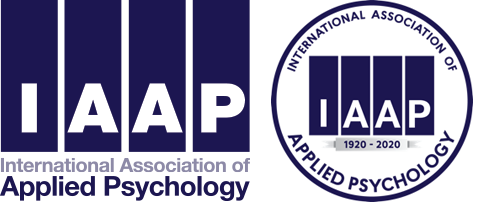Recommendations for the Sustainable Development Goals at the 2015 Intergovernmental Negotiations: Psychological Contributions Across the Agenda, including Well-being, Human Rights, Resilience, Racism, and Beyond GDP
Submitted to the Co-Chairs of the Intergovernmental Negotiations by Judy Kuriansky, Chair of the Psychology Coalition at the United Nations (PCUN) and main representative of the International Association of Applied Psychology (IAAP), and Corann Okorodudu, past PCUN Chair, June 2015
Congratulations to the co-chairs for their exemplary leadership and for crafting an agenda that is visionary and transformative. We appreciate the focus on the PEOPLE, and on the 5 P’s: People, planet, prosperity, peace and partnership. Such alliteration with meaningful principles is communicative, understandable, and memorable to the public.
We suggest the following, to strengthen the declaration:
- Since including mental health and wellbeing is truly transformative to be included in target 3.4, it would be strengthened in the Declaration, by:
- In the Preamble, in the second bullet point, insert the words “and well-being” after the word “health” to read, “Secure education, health and well-being, and basic service for all.” This is consistent with the wording of the Health Goal 3 that incudes well-being.
- In para 23, add a sentence at the end to read, “These efforts together achieve out vision of integrating physical health, mental health and well-being.” As it stands now, only physical health issues are enumerated, conspicuously leaving out reference to mental health which is included in Goal 3 and should be reflected here. A visionary, transformative, holistic view requires that health always refers to physical and mental health, also consistent with WHO definitions.
- In para 27,
- Insert the words “structural and psychosocial” before the word “resilience” in the last sentence, to clarify these two aspects of resilience, especially since this agenda is for the people, and so many disasters have left people traumatized and needing support. The word “psychosocial” is consistent with the Sendai Framework, para 33 (o) that states: “Enhance recovery schemes to provide psychosocial support and mental health services for all people in need.”
- In the same sentence, add to the words “disaster preparedness,” so the whole sentence reads, “promote infrastructural and psychosocial resilience, and disaster preparedness, risk reduction and recovery” also consistent with the Sendai Framework.
- In para 39, insert the phrase, “including measurements beyond GDP” at the end of the last sentence, after the phrase “in supporting and tracking progress.” This reflects the need to collet data supporting indicators of progress in areas beyond economic, and in the other two pillars, e.g., social and environmental. Such measurements exist, making indicators possible.
- To combat racism and racial/ethnic discrimination, both overt and covert, that continue to be the source of global conflicts and inequalities, causing disadvantage and marginalization among peoples worldwide, and in the spirit of a truly transformative agenda, we recommend:
(a) In para 11, after the words, “the Universal Declaration of Human Rights,” insert the phrase, “and other human rights standards, such as the International Convention on the Elimination of All Forms of Racial Discrimination, and all other human rights conventions,”
(b) In para 12, recognize the structural and systemic bases of disparities, by adding a phrase at the end of the second sentence, after the word “power” that reads: “rooted in structural historic and contemporary human rights violations including discriminatory laws and practices which result in social and economic disparities.”
(c) As a genuine commitment to “leaving no one behind,” we call for quality disaggregated data for all groups including age, gender, race, ethnicity, indigenous identity, income, class/caste, etc.
- Since many Member States over the past days have mentioned the need for more address to the environmental pillar, and since our Coalition has divisions on environmental science, we underscore that a health environmental ensures wellbeing. Thus, in para 24, lines 1 and 2, we commit to making fundamental changes in the way that our societies produce and consume goods and services “to minimize social and environmental impacts.”
Thank you for the opportunity to contribute to the once-in-a-generation agenda that is truly transformative, visionary and inclusive, to guide our valuable efforts, in partnership, in the way forward.

